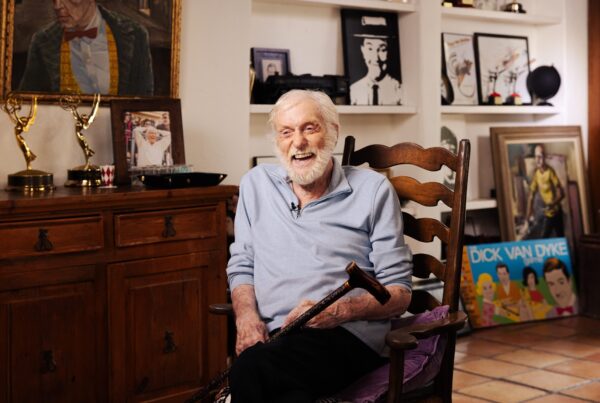The past two years have had us waging a weaponless, faceless war, with no end in sight. We’ve experienced a whirlwind of emotions. It’s not surprising that pain has been the primary symptom I’ve witnessed among my clients.
How we experience pain
Often perceived as only physiological, pain can also be experienced as an emotional and mental agony. This anguish manifests in depression, panic, anxiety, anger, sleep deprivation, chronic fatigue, and more. How do we begin to gain awareness and prevent these perpetual stressors from emotionally hijacking us during this ominous time and beyond?
Observe yourself, observe your pain body

Zuraida Jardine/Instagram
Author and spiritual teacher Eckhart Tolle refers to the “pain-body”, which he describes as an accumulated suppressed emotional pain derived from past experiences that were never fully dealt with.
Inter-generational trauma
This nuanced pain can also arise in the form of generational trauma – where traumatic events occur decades before one generation and impact on a future generation. The intergenerational trauma can surface at any given moment, leaving an individual confused, triggered, and traumatized.
Triggered we are, and if we aren’t now, we or the next generation will be due to the emotional dysfunctions we face today.
Dealing With Trauma
To understand this period we’re in, we need to understand how we’re being affected. For example, we need to understand the integral role that cortisol plays in regulating our body’s autonomic nervous system.
The tole of cortisol
Cortisol is a hormone that responds to our daily internal and external fears. When the brain receives information in the form of imminent physical danger, such as speedily slamming on brakes to prevent an accident, the hypothalamus, a small region at the base of the brain, activates an alarm, signaling our adrenal glands to release adrenaline and cortisol. Our heart rate increases, and blood pressure rises to prepare our body for the energy needed to fight, flight or freeze. Once the threat is alleviated, cortisol levels decrease, heart rate stabilizes, and we return to our parasympathetic state, a non-threatening rest and digest space.
Upping your game and escaping the pain
Unfortunately, the chaos of the pandemic has planted us in a perpetual place of panic, with our brain perceiving us to be in constant harm, resulting in cortisol running rampant all day, every day.
We’re unfit and unprepared for this game. But, while the gloom feels like doom, it also presents us with a prospect to manage how much of this tumultuous time we’ll allow to merge into our cells to become part of our pain body and generational trauma. If we face our fears, tackle our traumas, we can be the game-changers of our time.
Practice these 5 pillars of health can aid in a symbiotic state of overall wellbeing
Get moving
Physical activity positively impacts cognitive function by reducing cortisol and releasing feel-good hormones such as endorphins.
Eat well
Become intentional about your nutrition; it’s a vital energy and gut health source that impacts your quality of life.
Sleep soundly
Sleep staves off disease, repairs damaged cells, rejuvenate the mind and body, and makes you pleasant to be around. Be deliberate about your bedroom space being a sanctuary of serenity.
Breathe
Effective breathing is the difference between ease and dis-ease. Your breath will teach you the distinction between reacting and responding.
Rest
Normalize doing nothing. Venture into nature and observe how your body and mind organically slow down to the rhythm of your location.
Connect
Bonding with others is paramount to happiness, wellbeing, and longevity.
The game has changed and so must you
We’re in the landscape of a life-awakening, and if we want, we can emerge from this mess as lotus flowers mount from mud.
About the Author
 Zuraida Jardine is a well known South African public figure. She holds an Honours degree in Psychology, is an internationally-certified Functional Medicine Health coach, an advanced Breathwork practitioner and is currently completing her Masters Thesis in Critical Diversity Studies, with research interests in the efficacy of Breathwork Therapy for stress, anxiety and burnout.
Zuraida Jardine is a well known South African public figure. She holds an Honours degree in Psychology, is an internationally-certified Functional Medicine Health coach, an advanced Breathwork practitioner and is currently completing her Masters Thesis in Critical Diversity Studies, with research interests in the efficacy of Breathwork Therapy for stress, anxiety and burnout.
Zuraida’s personal shift towards recognising the multi-layered stories within us all as individuals continues with her new optimal wellness journey. As a Breathwork Therapy and Functional Medicine Health Coach, she operates within a holistic paradigm, appreciative that the whole person is made up of interdependent parts and if one part is not in optimal flow this influences other areas. Having imbalances ultimately effects mental, physical, emotional, or spiritual wellbeing and can lead to chronic disease.



![women [longevity live]](https://longevitylive.com/wp-content/uploads/2020/01/photo-of-women-walking-down-the-street-1116984-100x100.jpg)










